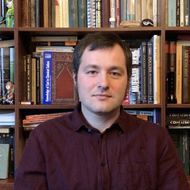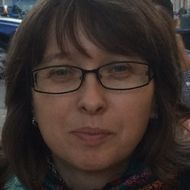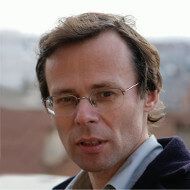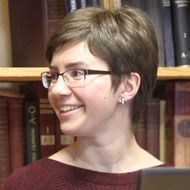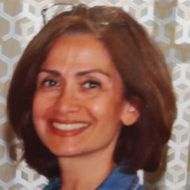Centre for the Study of the Middle East, the Caucasus and Central Asia (CSMECCA)

The Centre for the Study of the Middle East, the Caucasus and Central Asia (henceforth CSMECCA) supplements the study of the Classical Middle East with research into Modern and Contemporary History, without which students cannot gain comprehensive knowledge of the history of the Middle East. Among historians currently researching the origins of contemporary glocal processes, there is a clearly growing focus on the Modern and Contemporary history of the Near and Middle East, the Caucasus and Central Asia.
The establishment of the Centre was stimulated by the following factors:
the discovery of new archival documents in the repositories of European countries and the USA, and especially the declassification of documents in the archives of the Russian Federation and other former Soviet republics. This has created an entirely new source base for historical research, revealing new, hitherto unexplored facets of events, often overturning conventional historiographical wisdom;
the rapid development of research on the Middle East and adjoining regions in Modern and Contemporary History; the application by researchers of new theoretical methodologies in order to master both new empirical data and the scholarly revision of facts previously processed by the tools of the classical historical narrative;
the unsatisfactory state of Russian research into the historical period referred to as ‘modernity’ in the Middle East and adjoining regions;
the almost total absence of relevant works by Russian scholars in international scholarship.
Aims and tasks
The work of CSMECCA primarily aims at applying the latest international approaches to the construction of a historical narrative of the modern era to Russia's Middle Eastern studies. CSMECCA is an international platform, bringing together researchers from different countries whose research output meets the international standards of ‘research excellence’.
CSMECCA focuses on the study of Modern and Contemporary History events and processes in the Middle East, Central Asia and the Caucasus within a broad thematic range: domestic and foreign policy, economy, material and spiritual culture, literature, religion, history of everyday life, cross-cultural communication, etc., i.e. within the broadest thematic field in the area of historiography, such as research into modernity.
Activities
CSMECCA assists its staff in academic publication activities;
CSMECCA organizes international seminar series, workshops and conferences jointly with leading West European and North American scholars in the context of joint projects;
CSMECCA seconds its staff abroad to participate in conferences and workshops as well as to carry out archival research and other academic activities within specific international projects;
CSMECCA works to accumulate sources for the study of the region, both in hard copy and in electronic format: books for the HSE Central Library, books and newspaper collections in the languages of the region for the Centre's thematic library, obtaining electronic access to archival databases and thematic private collections located in the countries of the region under study;
CSMECCA focuses on interacting with sister units of the Moscow campus of the HSE University and on inter-campus cooperation;
CSMECCA is active in educational activities: it organizes courses for HSE students to study history and culture, as well as contemporary aspects of the region of specialization, including courses authored by renowned internationally acknowledged scholars;
CSMECCA is committed to the spirit of openness and internationalization of academic knowledge; it cooperates with other Russian (MSLU, RUDN University, Moscow State University, IVRAN) and foreign universities and institutes (from the US, UK, France, the Netherlands, Austria and Japan), academic centres and laboratories.
CSMECCA, in cooperation with researchers from leading West European and North American universities, is currently carrying out projects within the following research themes:
histories of interaction between the broader Persianate World and European countries based on the study of ego-documents, acting as methodological tools for the construction of historical narratives;
Soviet refugees in West and South Asia and the policies of recipient states towards them during the interwar period (1917–1941) and the Allied occupation of Iran (1941–1946);
CSMECCA secured funding and organised the course ‘Oil Wars? Armed Conflict, War and Foreign Power Intervention in the Persian Gulf and Beyond (1898-1991)’ by Professor Oliver Bast (Sorbonne Nouvelle Paris 3); the course is delivered in an internationally open format; the registered audience of the course constituted 118 participants from the regions such as: North America, Western Europe, the Middle East and Russia;
CSMECCA secured funding and organised the course 'Modern Middle Eastern Societies: Gender, Religion and Culture' by Dr Mozhgan Samadi (University of Manchester, United Kingdom);
CSMECCA secured funding for the course 'Revolution and Resistance in the 20th Century Middle East' by Dr Siavush Randjbar-Daemi (University of St Andrews, United Kingdom);
regional Middle Eastern responses to the Cold War, using the example of Iranian state nationalism and the perceptions of socialist camp countries by different segments of Iranian society in the 1960s and 1970s;
late Soviet and post-Soviet Russia's relations with the Islamic Republic of Iran until the beginning of the twenty-first century;
CSMECCA secured funding and organised the course ‘Russia and the Regional South: The Middle East, Central Asia, and the Caucasus (1800-2000)’ by Professor Touraj Atabaki (Leiden University, International Institute of Social History); the course consists of lectures and seminars and is taught to HSE students only;
CSMECCA secured funding for two one-year postdocs: one in 'Modern and/or Contemporary History of Iran' and another in 'Modern and/or Contemporary History of the Arab World' (University of Yale, USA and University of Padua, Italy);
CSMECCA secured funding and conducted the course The history and historiography of medieval Persia, 7th – 18th century by Professor Charles Melville (Cambridge University, UK); the course consists of lectures and seminars and was taught to HSE students only;
Director, Professor, Head of the Centre

Professor, The International Institute of Social History
Associate Professor
Associate Professor

Professor, Sorbonne Nouvelle University
Associate Professor
Senior Lecturer

University of Cambridge
Associate Professor

Senior Lecturer
Associate Professor
Chief Research Fellow
Lecturer
Have you spotted a typo?
Highlight it, click Ctrl+Enter and send us a message. Thank you for your help!
To be used only for spelling or punctuation mistakes.

